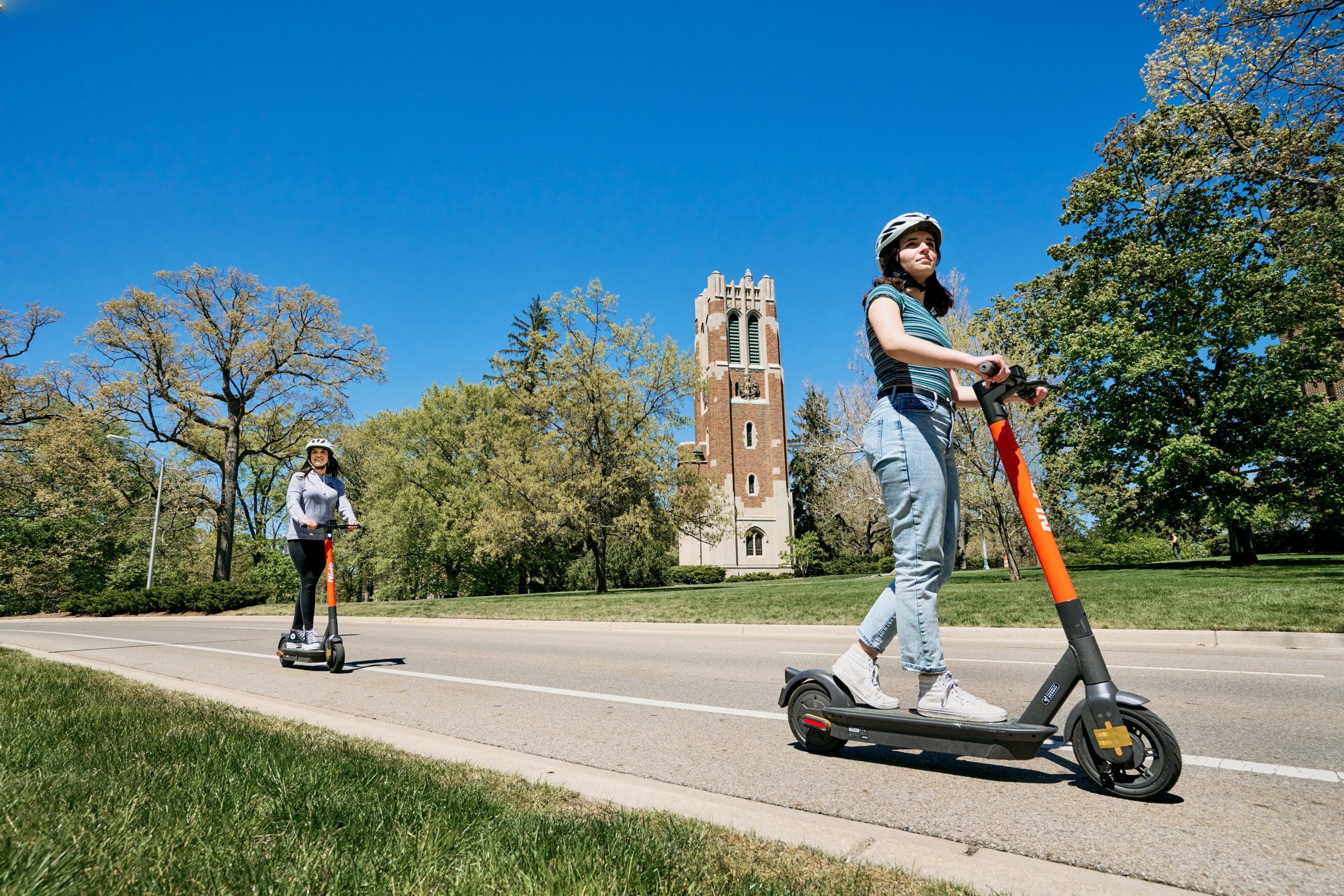Michigan State University launched a new exclusive partnership earlier this spring bringing hundreds of e-scooters to campus with Spin, a San Francisco-based micromobility unit of Ford Motor Co. The partnership is a continuation of the university’s effort to use the campus as a testbed to drive the future of human-centric mobility solutions.
More than 600 scooters are now on campus, and that number will likely continue to grow. By early November, Spin had already tracked more than 170,000 rides.
“I am not at all surprised at Spin hitting this milestone so quickly on the MSU campus,” said Brice Nelson, senior director of corporate partnerships at Business Connect, the corporate engagement arm of the MSU Innovation Center. “Spin has a great team that has become part of our ecosystem by working collaboratively to understand and address operational issues while investing in future mobility by working with student teams and faculty research programs.”
Scooters can be found at various locations throughout campus as well as on East Grand River and Albert avenues. To unlock the scooters, riders must download the Spin app onto their Apple or Android device. The scooters cost $1 to unlock and 20 cents per minute to ride.
In the Spin app, riders can view a map of the Slow Zones (reduced speed zones) and the locations of the scooters. The scooters have a top speed of 15 mph on campus and are operational from 6 a.m. to 10 p.m.
With COVID-19 precautions, all scooters are sanitized several times each week by Spin representatives. Riders are encouraged to sanitize their hands before and after riding to prevent the spread of germs.
“We look forward to giving students, staff and faculty a safe, sustainable and socially-distanced form of transportation to navigate MSU’s expansive campus,” said John Lankford, head of campus partnerships at Spin. “As the micromobility unit of Ford Motor Company, we’re excited to serve the MSU community in Ford’s home state of Michigan while driving research that will inform the future of the micromobility industry.”
Anonymized data from the scooters will be available to MSU mobility researchers to further understand how people use scooters and interact with other methods of transportation to get from point A to point B. This area of research is expected to expand as the popularity of micromobility options grows on campus.
“MSU is on the cutting edge of providing safe and efficient micromobility options,” Nelson added. “We have the base to continue our process of implementing and inventing technology that leverages our campus infrastructure to enable the coexistence of pedestrians, bicyclists, e-scooters, cars and buses.”
Any e-scooters other than Spin, including those privately owned, must obtain a permit to park from the MSUPD. Individuals must be 18 years old or older to ride Spin’s e-scooters and should obey local traffic laws. MSU and Spin encourage users to wear a helmet while riding.
“Spin has demonstrated itself to be an innovative leader in the micromobility space and we are excited to provide our campus with improved mobility while continuing to evolve MSU into a best-in-class first-mile last-mile research destination,” Nelson said.
Ben Pietrowski, a regional manager for Spin and 2003 College of Engineering alumnus, said the partnership between Spin and MSU is making a difference.
“I’ve enjoyed working closely with MSU to ensure that we’re delivering on safety and parking adherence in order to maintain a sustainable program,” Pietrowski said. “Seeing this many students choose Spin for daily transportation has me wishing scooters were an option when I was at MSU trying to get to those 8 a.m. classes from Brody. Go Green!”

